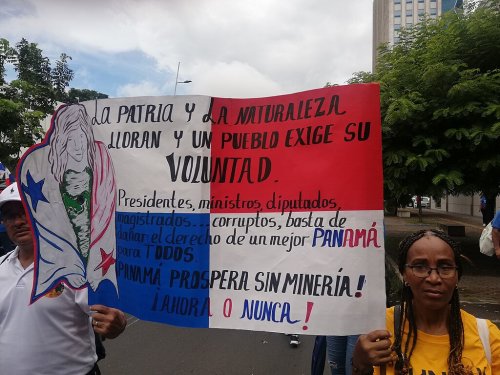AFTINET | 9 January 2024
Panama sued by 3+ mining companies after supreme court rules mining contract unconstitutional
In November, Panama’s Supreme Court found Law 406, which gave a 20-year mining concession for the multi-billion copper mine Cobre Panamá, was unconstitutional. However, following the ruling, Panama is now facing at least three Investor-State Dispute Settlement (ISDS) cases from mining investors who claim that their investments have been affected by the decision.
Law 406 was intended to be an improvement over the unrestricted mining rights granted for the Cobre Panamá mine by Law 9, the previous mining concession. However, the rapid passage of Law 406 and unaddressed environmental and sovereignty concerns led to Panama’s largest protest movement in decades and the constitutional challenge. Protestors have argued that the Cobre Panamá mine has led to deforestation and diversion of water supplies, but the mine protests have come to represent broader dissatisfaction with the political system and the power of mining companies in Panama.
Environmental Advocacy Centre (CIAM) argued that Panama’s environment is worth more than “a few million in royalties.” In 2018, CIAM said that the mining concession was an example of a “one-sided document that did not benefit the Panamanian state and its citizens” and allowed “various unregulated activities that have been detrimental to local citizens.”
The main investor in the Cobre Panamá mine, First Quantum Minerals and other investors including Korea Mine Rehabilitation and Mineral Resources and Orla Mining have indicated that they are likely to commence ISDS cases against Panama. ISDS is a provision included in some trade agreements, including the Canada-Peru Free Trade Agreement, and can be used by multinational corporations to claim billions in compensation if they can argue that a law or policy decision harms their future profits, even if the decision is made for environmental or other public interest reasons.
While environmental campaigners have celebrated the supreme court ruling, the ISDS claims are a significant economic threat. In the wake of Supreme Court ruling, Panama’s financial outlook rating has been downgraded from stable to negative and Panama has lowered its 2024 economic growth estimate. The compensation claims being given under ISDS are very large and amounts of up to USD $40 billion have been awarded. This has led to calls for ISDS awards to be limited to the actual value of investments and criticism of the ISDS system more broadly.
Read AFTINET’s updated briefing paper on ISDS here.



